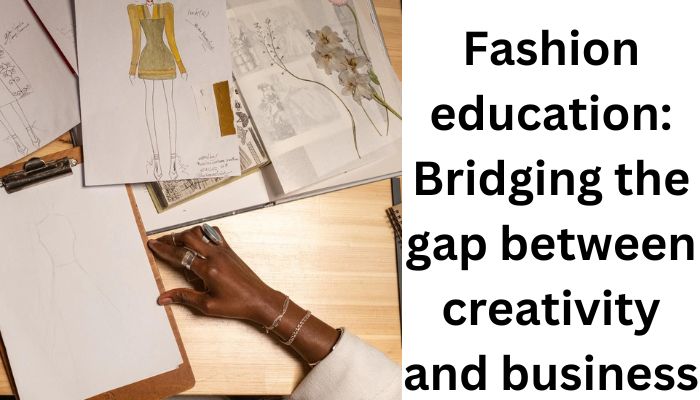Fashion education holds a pivotal role in closing the gap between creative aspirations and the practical demands of the industry, shaping the path for emerging designers and entrepreneurs to thrive.
Fashion extends far beyond the garments we wear; it serves as a potent form of self-expression, a reflection of culture, and a multi-billion dollar industry that deeply influences both personal identities and the broader world. Whether we’re entranced by high fashion on the runway or making choices from ready-to-wear collections, fashion remains a powerful force.
In this exploration, Harsh Dalal, the Director of JD Institute of Fashion Technology, delves into the essential function of fashion education in connecting these often disparate worlds, laying the groundwork for the success of aspiring designers and entrepreneurs.
**The Significance of Fashion Education**
Within the realm of fashion, creativity and innovation reign supreme. Designers draw inspiration from their surroundings, cultural influences, and personal emotions to craft pieces that convey unique stories. Nevertheless, in today’s fiercely competitive fashion landscape, creativity alone does not suffice. An in-depth understanding of the business facets of fashion is equally indispensable. This is where fashion education takes the stage, serving as a bridge between artistic vision and commercial viability.
**Nurturing Creative Foundations**
Fashion education kicks off by providing a solid foundation in design principles, enabling students to hone their creative talents. Fashion institutions structure their curricula to cover a wide spectrum, encompassing everything from sketching and pattern-making to fabric selection and garment construction. These technical skills serve as the building blocks that transform creative ideas into tangible realities.
**Fostering Collaboration and Teamwork**
Collaboration represents another cornerstone of fashion education. The fashion world thrives on a collaborative spirit, where designers, merchandisers, marketers, and production teams unite to bring collections to life. Fashion schools actively encourage interdisciplinary collaboration among students, preparing them for the teamwork they will inevitably encounter in the professional realm.
**Ethical and Sustainable Fashion**
Fashion education also acquaints students with the ethical and sustainable dimensions of the field, which have gained increasing importance in the modern world. As consumers grow more conscious of the environmental and social impacts of their clothing choices, fashion designers and businesses must adapt. Fashion education equips students with the knowledge and tools to integrate sustainable practices into their work, ensuring they are well-prepared for a perpetually evolving industry landscape.
**Industry Connections and Internships**
Furthermore, fashion education opens doors to internships and industry connections. Many reputable fashion institutions have partnerships with leading fashion companies, offering students invaluable opportunities to gain practical experience and expand their professional networks. In an industry that thrives on relationships and networking, these connections can be instrumental in launching a career in fashion.
**Embracing Digital Fashion**
In recent years, the fashion industry has embraced digitalization and e-commerce. Fashion education keeps pace with these transformations by incorporating digital design tools and e-commerce strategies into the curriculum. This ensures that graduates are proficient not only in traditional design and production but also in the digital technologies shaping the future of fashion.
**Fashion Business Management**
Fashion education transcends the boundaries of design schools, encompassing business schools that offer specialized fashion management programs. Graduates of these programs acquire the skills necessary to effectively manage and expand fashion brands while prioritizing consumer needs. By imparting technical skills, nurturing critical and conceptual thinking, promoting collaboration, and introducing students to the ethical and sustainable dimensions of fashion, fashion education equips graduates with the tools they need to navigate the dynamic and competitive fashion landscape.

